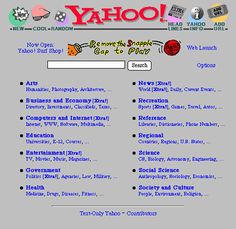Most of the time, distractions are your fault
I had an acquaintance reach out to me recently who wanted my advice on an issue he has been experiencing in his workplace since, as he said to me in his note, 'Know something about HR'. While that is entirely up for debate, I had the sense that this person didn't really have many options to look to for some help, so I agreed to try to help and we had a talk.
The gist of the problem, without getting into the details and the original causes of said problem, as they don't really matter, was that he has had a series of run-ins, arguments, and increasingly loud and hostile disagreements and interactions with a co-worker in an adjacent department. He and this person don't directly work on the same team, but their paths do cross from time to time on larger projects, division meetings, in the hallway, etc. There have been a couple of nasty email exchanges, allegations of some office refrigerator lunch shenanigans, and last week, a loud, screaming really, argument that was so loud that it caused the VP over both their departments to emerge from her office and send both parties home for the day. And to be clear , this is just personality conflict kind of stuff, nothing physical or sexual harassment related at all.
When I talked to him, my acquaintance was exasperated because, at least according to him, none of this was his fault, he was not the source of the hostile behavior, and he really wants nothing at all to do with this co-worker. He just wants to show up, do his job, and go home. Which I suspect most of us do too. But for some reason, my acquaintance claimed, the HR folks who have gotten pulled in to this matter, and the VP and department managers are 'blaming' (his word), him equally for these workplace dramas and interruptions, and have not seen his side of the story. And this, he claims, is not fair. (I can read the minds of just about everyone still reading this laughing at the idea the the workplace should be 'fair'. But I digress).
After hearing all that, again, just the one side of the story but coming from a person I think is pretty honest and trustworthy, I had to at least try to offer some advice. Kind of like when the contestant on Who Wants To Be a Millionaire uses their 'Phone a Friend'. Even if you have no idea of the name of the 17th European Monarch who lost some obscure battle, you better at least take a guess.
So here was my guess/advice.
These continuing issues that take time and attention from managers, colleagues, HR, and even execs get lumped into a large bucket called 'distractions', i.e., 'Stuff no one who has other things to do wants to deal with.'
It doesn't matter who is 'right' or 'wrong' in this. If my acquaintance and his co-worker can't figure out a way to work this out, or effectively ignore each other, it is pretty likely that the VP will hit the point of 'I don't need to keep hearing about this nonsense' and one of the two people involved will have to go. Maybe a transfer, (might be unlikely because it is a small company), but more likely a 'Clean out your locker, it's time to go' for one or the other.
And it won't matter which one started it or is 'wrong' or is being the bigger jerk.
To many leaders, owners, execs, and even HR folks the solution to the problem isn't about sorting out who's right or who is wrong. The solution is about eliminating the distraction.
That's why companies like Yahoo and IBM, after unearthing a few cases of remote workers more or less slacking off, decide to do a wholesale revocation of their work from home policies. That's why ESPN, after a couple of instances of on-air talent posting some arguably controversial content on social media issues a new, updated, and broadly worded social media policy that specifically requires employees to avoid posting content that would 'embroil the company in unwanted controversy.' And you know what 'unwanted controversy' is? Yep, another distraction.
So I left the call with my acquaintance with this thought - if what you are doing (or being pulled into), is helping to create the same kind of 'unwanted controversy' or 'distraction' that no one with an important title wants to deal with, then you had better be prepared to be told it's time for you to go.
I don't know if that was good advice or not. But it seems like if he fails to understand that things at work are often not fair, and distractions are like Superman's Kryptonite to business leaders, then he could be in for some bad news.
Have a different thought on this? Let me know in the comments.
Have a great day!

 Steve
Steve



